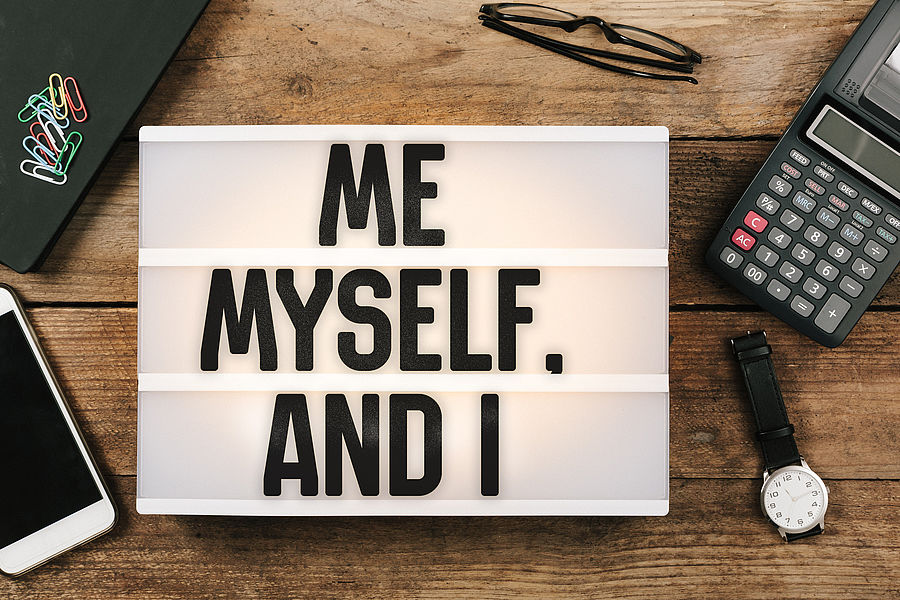
Diese Pronomen verwenden selbst Muttersprachler nicht immer korrekt. Wenn wir über uns selbst sprechen (und wir machen dies häufig in verschiedenen Kontexten), erspart uns die richtige Verwendung der Pronomen einige unangenehme Momente.
These pronouns seem easy enough to use but even native speakers sometimes make mistakes. However, because talking about ourselves is unavoidable - indeed, we are often our own favourite subject - we should get them right.
The object of a sentence: Me
'Me' is used when you are the object of the sentence, e.g. 'Please give me (the object) the file' or 'Tell me the truth!' Other pronouns as objects are: 'you', 'him', 'her', 'it', 'us' and 'them'.
Reflexive pronouns: Myself
'Myself' is a reflexive pronoun. Other pronouns in this category include 'yourself', 'oneself', 'himself', 'herself', 'itself', 'ourselves' and 'themselves'. They are used when the subject and object of the sentence are the same, such as 'I gave myself the day off and went to the pool instead'. We often use it for emphasis as in 'I my- self wouldn't wear that', but 'I wouldn't wear that' is fine as well.
The subject of a sentence: I
'I' is used when you are the subject of the sentence, e.g. 'I (the subject) am very diligent'. By extension, this is how you would use 'he', 'she', 'it', 'we' and 'they' as well, e.g. 'They (Paula and Roberto) are from Italy'. Unfortunately, it's quite often to hear 'me' used as a subject instead. A sentence like 'Me and me friend went into town and got totally sloshed' is grammatically incorrect, though you hear this often enough about a Saturday night in certain parts of London. If you remove 'me friend', you would get the sentence 'Me went into town last night', and that's obviously wrong. In standard English, it would be 'My friend and I went into town and got totally drunk'.
A common German error
Germans tend to say in English 'We meet us this evening', a direct translation from 'Wir treffen uns heute Abend'. In English we would logically say, 'We'll meet each other this evening' (in the case of two people, since I expect to meet you, and you expect to meet me). We can also say 'We'll meet one another' in the case of more than two people. But really, 'We'll meet this evening' or 'Let's meet this evening' is perfectly fine in English.
Here's a little practice to see if you've got the hang of it all:
- I told me/myself to be careful but I still made many mistakes.
- My colleagues and me/I caught the train at the last minute.
- They gave my colleagues and me/I the bad news last night.
- We told us/ourselves not to overeat but of course the buffet was too tempting
- The judge recused him/himself from the case because he is the uncle of one of the defendants.
